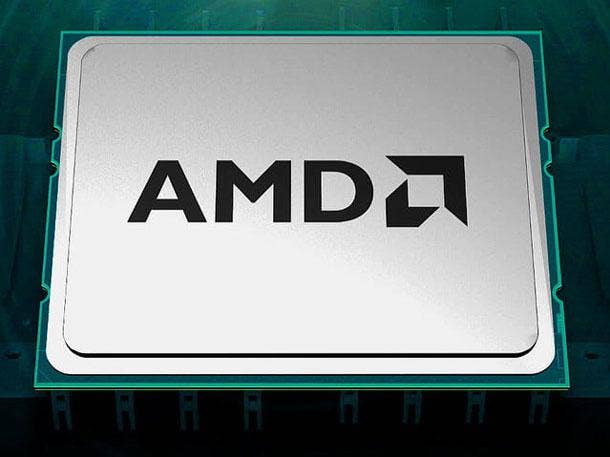AMD Targets Intel NUCs With New Ryzen Mini PCs From Partners
'It's definitely going to be at a lower price point than Intel-based systems for the equivalent performance and power,' one AMD partner says of its new Ryzen-based industrial PCs.

AMD is challenging Intel's dominance in the mini PC space with a new ecosystem of partners who are bringing systems to market powered by the chipmaker's Ryzen Embedded processors.
The Santa Clara, Calif.-based company announced the "open ecosystem" of mini PC partners on Tuesday with the promise of extended availability and high performance in small form factors that will serve industrial, enterprise and media use cases, among others.
[Related: Intel, MediaTek To Develop 5G Laptop Modems For 2021]
The Ryzen Embedded ecosystem partners include ASRock Industrial, EEPD, OnLogic and Simply NUC, who will help AMD increase its competition against Intel's Next Unit of Computing (NUC) systems as well other kinds of small form factor PCs that run on Intel processors.
The new mini PCs from AMD's partners are based on the chipmaker's V1000 and R1000 systems-on-chip. The V1000 chips feature up to four cores, eight threads, 3.8GHz in maximum frequency and Vega integrated graphics on a single package that scales in power from 12-54 watts. The R1000 series, on the other hand, features up to two cores, four threads, 3.5GHz in maximum frequency and Vega graphics with a thermal design power ranging from 12-25 watts.
Other benefits include a 10-year processor availability, the ability to power up to four 4K displays, configuration tools such as AMD Eyefinity for multi-monitor configuration, the scalability of different power and performance options and "leadership graphics and high performance compute" for applications ranging from machine vision to edge inference and analytics.
"When our partners decide to use AMD Ryzen Embedded SoCs to power their Mini PCs, they get the understanding and support that their devices have processor availability for an extended period of time, which helps reduce replacement cycles and minimize costs for their customers," an AMD spokesperson told CRN in an emailed statement.
Among the new systems are the ML100G-40 and MC510-40 industrial mini PCs from OnLogic, a South Burlington, Vt.-based industrial PC builder that was previously known as Logic Supply.
The ML100G-40 in particular is a fanless system, which means it is more reliable than regular desktops, especially in industrial environments, because there are no moving parts that can be jammed up by dust and other particles, according to Johnny Chen, partnerships manager at OnLogic.
"They're designed to run 24/7, so IT doesn’t have to worry about downtime," he said.
This is critical for companies that work in dusty environments, such as a graphite manufacturing plant, where conductive particles can enter a regular desktop PC and short-circuit the system, Chen said.
"It's a great example of why you don’t want fans," he said.
While the fanless design of OnLogic's mini PCs have made them a good fit for industrial customers, according to Chen, their high reliability, combined with the high performance offered by AMD's Ryzen Embedded processors, will allow the company to expand the market for the company's mini PCs into commercial environments for desktop replacement.
"From a performance perspective to a cost perspective, as well as feature-wise, it starts to move our systems out of the realm of only industrial," he said. "We have a lot of customers using industrial PCs as workstations because of the high reliability and fanless form factor."
Chen said one of the advantages of OnLogic's new AMD-based systems over its Intel-based systems is the graphical capabilities. The ML100G-40 comes with three video outputs while the MC510-40 supports four independent displays, which makes both systems good for digital signage as well as other use cases that require multiple screens or multi-tasking, he added.
"A lot of times people think industrial computing is low power or not as much processing power, but these systems prove otherwise," he said.
The new AMD-based systems also have a price-performance advantage over the Intel-based systems, according to Chen.
"It's definitely going to be at a lower price point than Intel-based systems for the equivalent performance and power," he said.